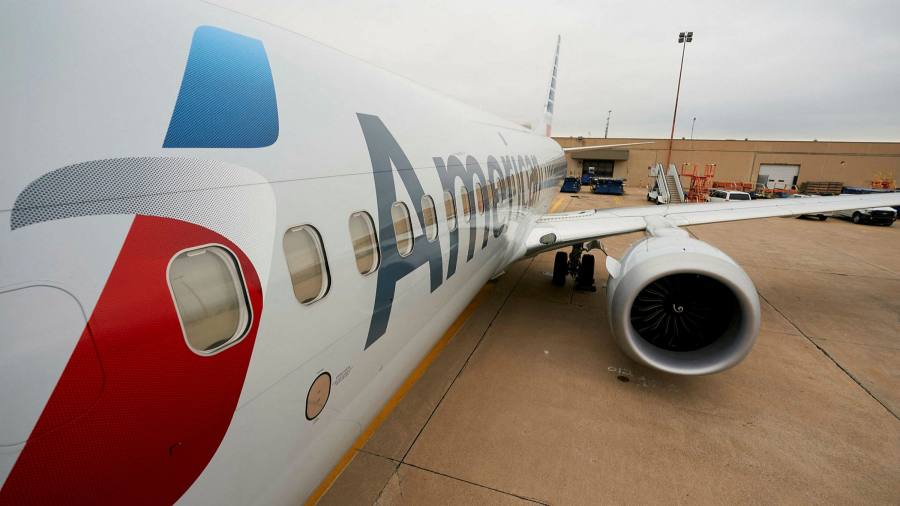[ad_1]
American Airlines has sealed the first portion of its industry-record $10bn debt deal that highlights the extent to which investors are searching for income even in sectors badly hit by the pandemic.
The Texas-based airline issued $6.5bn worth of junk bonds on Wednesday as part of a package that also includes $3.5bn in loans. The $10bn fundraising marks the biggest debt deal ever by an airline, beating Delta’s $9bn bond and loan sale in September.
The $10bn bond and loan deal drew $45bn worth of orders, according to one person familiar with the matter.
Both the bond and loan parts of American’s deal were increased on Wednesday from $5bn and $2.5bn respectively after investors rushed into the debt, encouraged by central bank support and desperate for returns.
Historically-low interest rates have pushed investors to search for yield in riskier parts of the market and to invest in sectors that have experienced a near-complete grounding of activities for almost a year.
American sold two tranches of high-yield bonds, rated Ba2 by credit rating agency Moody’s, at far lower interest rates than the 11.75 per cent it paid last summer. The five-year $3.5bn bond offered investors a coupon of 5.5 per cent while the 8-year $3bn bond had an interest rate of 5.75 per cent.
Junk, or high-yield, bonds are considered to be riskier than their investment grade counterparts and typically offer higher returns.
“The business is burning a lot of cash so this deal will give them about a year and a half’s worth of liquidity,†said Mark Benbow, high yield investment manager at Aegon Asset Management. “The fact that [investors] are willing to lend it $10bn shows just how supportive the market is at the moment,†he added.
American, which estimates it will burn $30m in cash a day in the first quarter, has used its loyalty programme as collateral for both the bond and loan elements of the jumbo deal.
Loyalty programmes are a lucrative source of cash for airlines, with the carriers selling miles to banks who attract affluent credit card holders by offering the miles as a lure.
American’s loyalty programme has 23m members and is more profitable than competitors, according to documents filed with the Securities and Exchange Commission. The carrier said its loyalty programme had a 53 per cent profit margin, compared with 44 per cent for United’s programme and 39 per cent at Delta.
American used its loyalty programme as collateral for the $7.5bn loan it received from the US Treasury as part of last year’s coronavirus relief package. The loan, which is distinct from the $9bn in taxpayer funds used to support American’s payroll, granted warrants to the US government, diluting American’s stockholders.
American is following the example of United and Delta, which have both used their loyalty programmes to help raise capital in the bond market. American plans to use part of the resulting funds to repay its government loan.
Pro forma financials for the business show it generated $3.1bn in net cash from operations in 2019, about three-quarters of it from selling miles to third parties like Citi and Barclays.Â
[ad_2]
Source link






